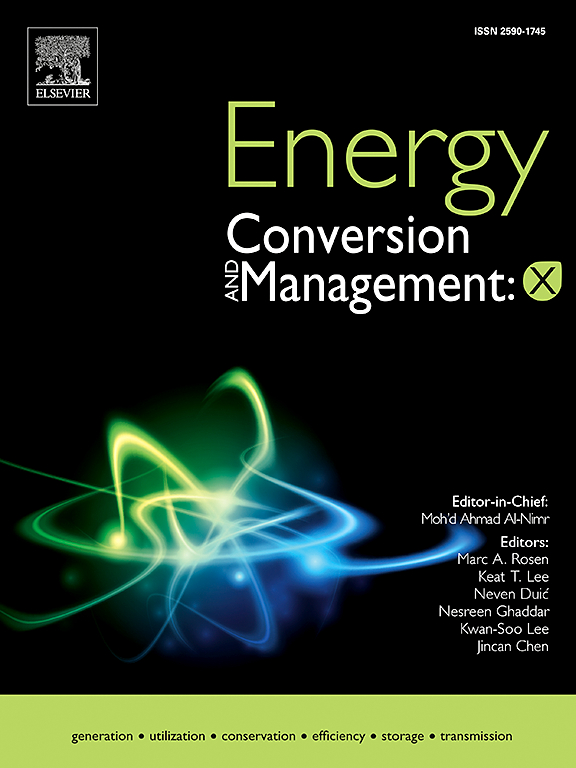背景因素:家庭太阳能光伏决策的驱动因素、障碍和可持续性影响的跨文化分析
IF 7.6
Q1 ENERGY & FUELS
引用次数: 0
摘要
向可再生能源的过渡对于应对全球气候挑战至关重要,但家庭对光伏(PV)太阳能系统的采用仍然有限,特别是在不同的社会经济和文化背景下。本研究调查了影响家庭决定安装太阳能系统的驱动因素和障碍及其对可持续消费行为的影响,重点关注马来西亚和巴勒斯坦作为对比的文化和社会经济背景。该研究通过扩展行为推理理论(BRT)来直接评估安装决策(而不仅仅是意图),并结合创新阻力理论(IRT)来研究激励因素和抑制因素,提供了一种新的理论整合。利用768名受访者的调查数据,结合偏最小二乘结构方程模型(PLS-SEM)和多群体分析(MGA),研究结果揭示了跨文化差异。在马来西亚,环境价值观强烈影响采用和安装的原因,突出了支持性政策和激励措施的作用。相反,在巴勒斯坦,系统性的社会经济障碍削弱了这些影响。在这两种情况下,安装光伏系统的决定与可持续消费行为呈正相关,尽管在马来西亚更为明显。这些发现强调了有利环境对提高光伏技术的采用和可持续性影响的重要性,并强调了在资源受限地区采取量身定制的干预措施以解决障碍的必要性。本文章由计算机程序翻译,如有差异,请以英文原文为准。
Context matters: A cross-cultural analysis of drivers, barriers, and sustainability impacts of household decisions on solar PV
The transition to renewable energy is critical in addressing global climate challenges, yet household adoption of photovoltaic (PV) solar systems remains limited, particularly in diverse socio-economic and cultural contexts. This study investigates the drivers and barriers influencing household decisions to install solar energy systems and their impact on sustainable consumption behaviors, focusing on Malaysia and Palestine as contrasting cultural and socio-economic contexts. The study offers a novel theoretical integration by extending Behavioral Reasoning Theory (BRT) to directly assess the decision to install—rather than mere intention—and by incorporating Innovation Resistance Theory (IRT) to examine both motivators and inhibitors. Using survey data from 768 respondents and Partial Least Squares Structural Equation Modeling (PLS-SEM) and Multi-group analysis (MGA), the findings reveal cross-cultural differences. In Malaysia, environmental values strongly influence reasons for adoption and the decision to install, highlighting the role of supportive policies and incentives. Conversely, in Palestine, systemic socio-economic barriers dilute these effects. The decision to install PV systems was positively linked to sustainable consumption behaviors in both contexts, albeit more pronounced in Malaysia. These findings underscore the importance of enabling environments in enhancing the adoption and sustainability impacts of PV technology and highlight the need for tailored interventions to address barriers in resource-constrained regions.
求助全文
通过发布文献求助,成功后即可免费获取论文全文。
去求助
来源期刊

Energy Conversion and Management-X
Multiple-
CiteScore
8.80
自引率
3.20%
发文量
180
审稿时长
58 days
期刊介绍:
Energy Conversion and Management: X is the open access extension of the reputable journal Energy Conversion and Management, serving as a platform for interdisciplinary research on a wide array of critical energy subjects. The journal is dedicated to publishing original contributions and in-depth technical review articles that present groundbreaking research on topics spanning energy generation, utilization, conversion, storage, transmission, conservation, management, and sustainability.
The scope of Energy Conversion and Management: X encompasses various forms of energy, including mechanical, thermal, nuclear, chemical, electromagnetic, magnetic, and electric energy. It addresses all known energy resources, highlighting both conventional sources like fossil fuels and nuclear power, as well as renewable resources such as solar, biomass, hydro, wind, geothermal, and ocean energy.
 求助内容:
求助内容: 应助结果提醒方式:
应助结果提醒方式:


